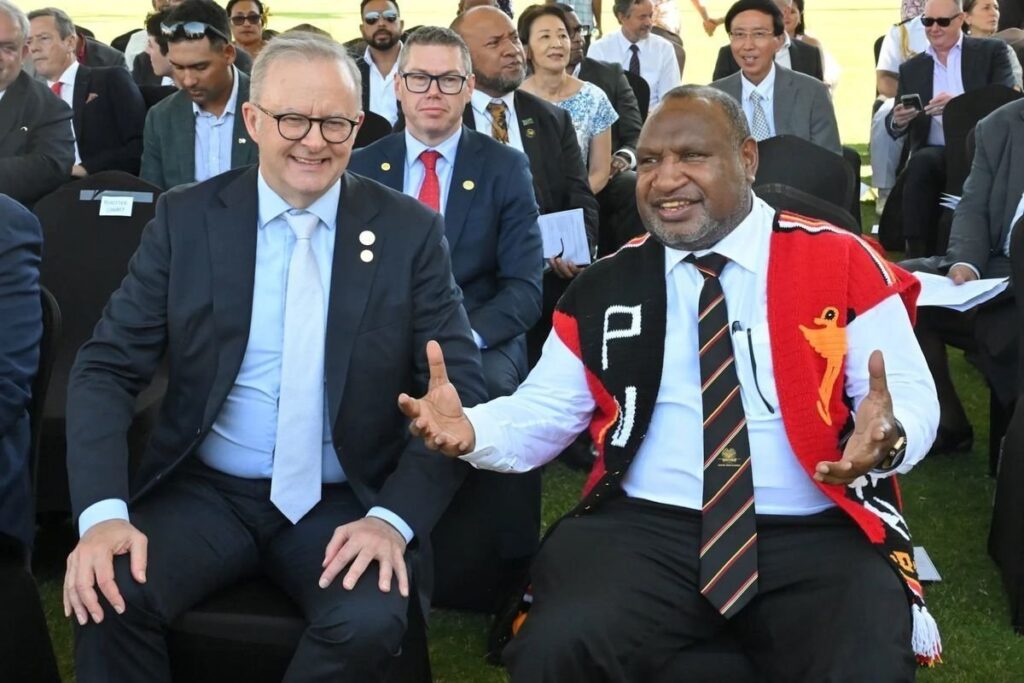Papua New Guinea Cabinet Signs Off on Landmark ‘Pukpuk’ Defence Treaty with Australia Amid China’s Shadowy Interference
- PNNG’s cabinet has approved the historic defence treaty, dubbed the ‘Pukpuk’ treaty, which will see the two nations defend each other in the event of a military attack
- The move is a significant blow to China’s growing influence in the Pacific, with Beijing urging PNG not to sign any deal that might exclude or restrict third-party cooperation
- Former PNG defence force commander Jerry Singirok has warned that the treaty could come at a high cost for the country, saying “it’s a disaster if we enter into this without understanding the long-term implications on our constitution”
Australia and Papua New Guinea have taken a monumental step towards strengthening their bilateral ties, with PNG’s cabinet approving the landmark ‘Pukpuk’ defence treaty. The move is seen as a significant boost to the two nations’ relationship, which has been touted as an alliance on par with Australia’s relationships with the United States and New Zealand.
However, the path to this historic agreement has been fraught with tension, particularly from China, which has been quietly attempting to exert its influence in the Pacific. Beijing’s embassy in PNG had issued a statement urging the country not to compromise its independence, warning against any deal that might exclude or restrict third-party cooperation.
Australian Prime Minister Anthony Albanese had faced criticism last month for failing to ink the agreement during his visit to PNG for the country’s 50th anniversary celebrations. But in a statement, an Australian Government spokesperson hailed the treaty as a “significant milestone” that would elevate the relationship with PNG to an alliance.
“This will be the first alliance in over 70 years and only our third overall,” the spokesperson said. “It puts our relationship with PNG on the same level as we have with the United States and New Zealand and builds on the already strong bonds between our defence forces, our economies, and our people.”

But not everyone is convinced of the treaty’s merits. Former PNG defence force commander Jerry Singirok has sounded a warning, saying that the treaty could come at a high cost for the country. “It’s common knowledge that Australia sees China as a potential threat, but China is not PNG’s enemy,” he told the ABC’s Pacific Beat. “It’s a disaster if we enter into this without understanding the long-term implications on our constitution.”
Despite these concerns, the treaty is seen as a significant step forward for the two nations, which have a long history of cooperation. The treaty will allow for the mutual defence of both countries, as well as the recruitment of soldiers from each other’s military forces.
The approval of the treaty comes as Australia is seeking to strengthen its ties with its Pacific neighbours, amid growing competition from China in the region. The move is seen as a significant blow to Beijing’s influence in the Pacific, and a major win for Australia’s foreign policy.

